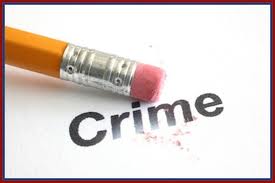Expungement 101

So years ago, you did something you regret. It left a mark alright, just not one you are proud of; the mark is on your criminal record. Whether it was getting busted with marijuana, causing criminal mischief, or something more serious, you likely have wondered what expungement would require.
Expungement is the process of legally destroying, obliterating, or striking out records or information in files, computers and other depositories relating to criminal charges. In other words, it makes your record almost disappear (we’ll get to why almost later on).
The expungement process can be done without counsel, however, without counsel, there is a good shot something may be missed, which could potentially undermine all the time, effort, and money spent in trying to have your record expunged.
After meeting with counsel, the first step in expunging your record is completing the BCI Application. The application and third party release waivers, as well as a $50.00 application fee (recently raised from $25.00), and any applicable orders.
BCI will send back a report notifying you of each expungable offense. After that, you must aquire a Certificate of Eligibility for each offense you seek to expunge, these cost $56.00 a piece.
Upon receipt, the Certificate of Eligibility is filed with the court along with a cover sheet and a petition for expungement (court fee is $135.00 per charge).
After filing these documents and a Proof and Certificate of Service, the matter is in the court’s hands.
If there is no opposition to the expungement, the court will order the record sealed. While this does not change history, it does prevent the public from viewing or copying record of the offense. Note that with cause, a court can order your record opened, thus it is not 100%. However, under Utah Code, “unless otherwise provided by law or ordered by a court of competent jurisdiction to respond differently, a person who has received an expungement of an arrest or conviction under this chapter may respond to any inquiry as though the arrest or conviction did not occur.”
Once the court has issued its order for expungement, it is your responsibility to get certified copies of the order and deliver those orders to all agencies involved with your case. Again, an attorney can help ensure you have all the necessary parties covered.
Some crimes cannot be expunged. These include:
- capital. first degree, and violent felonies;
- automobile homicide;
- felony DUI alcohol and drug cases;
- registrable sex offenses;
- cases where a proceeding is pending or under investigation;
- cases which have yet to meet the statute of limitations;
- cases where fines or restitution have not been paid in full;
- cases where not time from the conviction has not been met;
- cases involving two or more felony criminal episodes;
- cases involving any combination of three or more convictions that contain two class A misdemeanors;
- cases involving any combination of four or more convictions that contain three or more class B misdemeanors;
- cases involving five or more misdemeanors or felony episodes.
While this may seem exhaustive, there are many, many cases, where expungement would be completely appropriate. Talking to an attorney with experience in this area can help you determine whether pursuing expungement makes sense for you.
(A special thanks to Stacey Lambourne for content development on this post!)
Leave a Reply